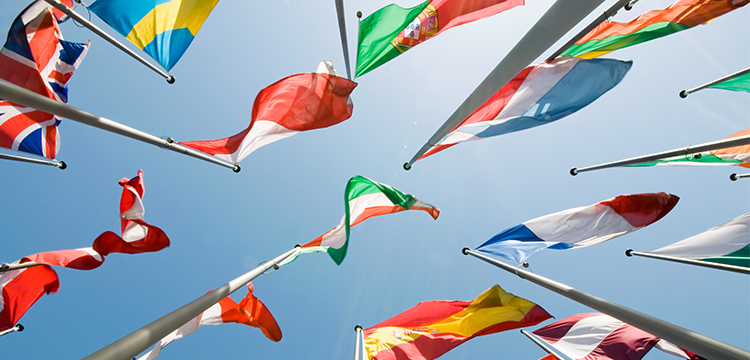The increase in cases across Europe is now reaching very serious proportions and in response a number of governments are taking a range of measures to stop the further spread of the virus. Ireland, the Netherlands and Spain have introduced a series of measures which are particularly stringent in comparative terms whilst many other governments have adopted a tightening of current restrictions in an effort to hold back the tide. There is no one size fits all approach which in part reflects the reality that for all governments the measures to take are a balancing act. European economies are struggling across the board because of Covid though of course in absolute terms some are struggling more than others. Tighter restrictions means further economic damage and there are no guarantees that the measures taken will anyway reverse the negative impacts of virus. There is also the problem of public support for a tightening of lockdown. Given the fact that getting on top of Covid is heavily reliant in citizens changing their normal behavioural traits this is of crucial importance as it is next to impossible to police their actions for every minute of every day.
This is evidenced particularly strongly in Italy. Parts of the country, particularly the north, were decimated during the first wave of the pandemic. Media footage of overcrowded hospitals at the time were resonant of scenes from a disaster movie. Very tight lockdowns were implemented in parts of the country and were largely regarded as being necessary. But the recent new surge of cases in Italy and the resultant tightening of restrictions once more are proving problematic. There has been anti-lockdown rioting in Milan, Turin and Rome and, whilst some commentators suggest that these have been hijacked by extremist movements, they also sense an increasing if currently more passive resistance from the wider public reluctant to re-engage with tighter restrictions and the negative economic fallout that will ensue. Giuseppe Conte, the Italian Prime Minister, has surprised many by managing to steer what might appear to be a rickety coalition government for the past year, twice as long as some commentators predicted. However, the upsurge in cases and resultant tightening of restrictions has shown signs of undermining his popularity. A television address to the nation last weekend, using a medium that Mr Conte has in the past done well with, was on this occasion greeted less than enthusiastically. Right wing parties, fearing further economic damage, were far from supportive and threatened to take legal action over the tighter restrictions introduced.
President Macron also took to the airwaves in France to announce tighter restrictions. Covid is running out of control in some areas and television footage of Covid patients being transferred from Avignon to other parts of France by military aircraft because local health facilities were being overwhelmed resonated of scenes from the worst moments of the first wave. The national lockdown announced by the President prohibited the public from leaving home except for medical or work reasons. Schools and factories will remain open but bars and restaurants will not. 46 million people in the country are under a night-time curfew. Macron warned that the country must now 'brutally apply the brakes' to stop the progress of a second wave which he feared would be worse than the first. The measures at this stage are planned to last for a month.
Germany too introduced tighter measures. Despite being well regarded as performing better than many other European countries, here too cases are surging upwards. Here, the measures are programmed to last for two weeks. Bars and pubs will shut and restaurants will close except for takeaways. Indoor gatherings will be limited to ten people from no more than two families. Hotels will be closed to tourists though they will remain open for 'essential reasons' whatever that might mean. Schools and nurseries will stay open. Chancellor Angela Merkel noted that the number of intensive care beds filled had been doubled in the space of ten days. The rise of cases has been so high that the testing and tracing system in the country is struggling to cope. The German health system, generally seen as being gold standard by European standards, is creaking at the joints.
These are just examples which could easily have been replaced by similar stories from other European countries. The World Health Organisation (WHO) reported a 35% spike in deaths in Europe compared to the previous week. The next few weeks appear to be critical in stemming the tide and avoiding a return to the scenes witnessed in a number of countries six months ago. Governments will be hoping that this crucial public health objective is met whilst at the same avoiding yet more excessive economic damage. A long and challenging winter appears to lie ahead.
Wayne Bartlett is an author for accountingcpd. To see his courses, click here.

You need to sign in or register before you can add a contribution.